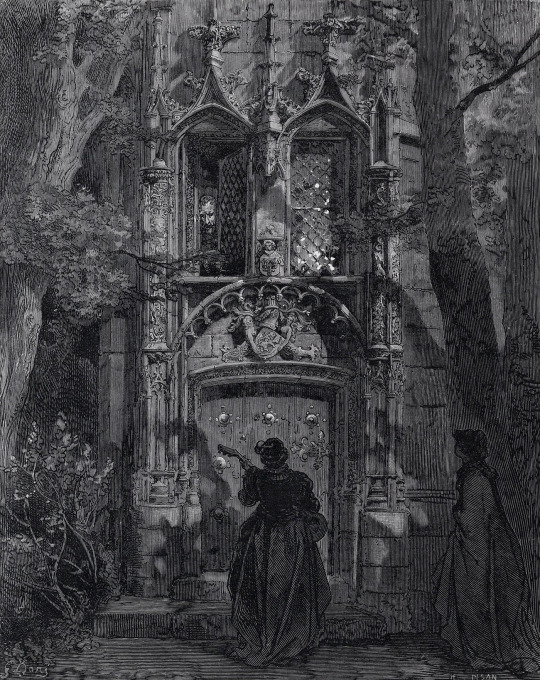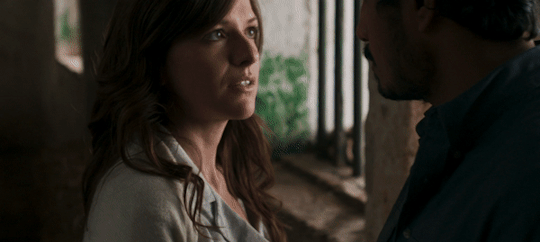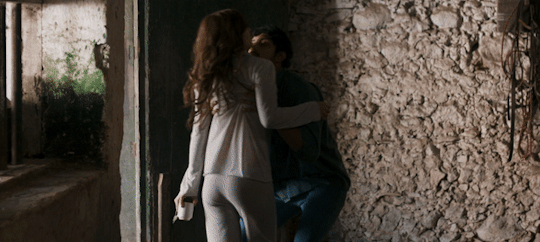#spanish romance
Text
I have made so many mistakes in my life. But part of the healing process is learning to forgive myself for making the wrong decisions and know that I am so much more stronger and capable of trusting my ability to choose differently moving forward.
#romance#spanish romance#relaciones#relationship#relacion amorosa#romance quotes#reading#self love#self improvement#growth#therapy#mental health
40 notes
·
View notes
Text
Love, Divided - Pared con pared Review
Pianist Valentina moves to a new place and gets off on the wrong foot with her next-door neighbor David, who is extremely noisy. Can romance spark between the two? Read our review of "Pared con Pared."
⭐⭐
Rating: 2 out of 5.
Follow us on Twitter | Instagram
Valentina, a young pianist, moves into a new flat with a looming audition in three weeks, but finds herself unprepared for the horrific, frightening sounds emanating from her next-door neighbor David’s apartment, a game-maker who ironically hates noise. As the two clash over the disturbance, they gradually warm up to each other’s…

View On WordPress
#Aitana#Entertainment#Fernando Guallar#Love#love divided 2024 movie review#Love Divided review#Music#Pared con pared movie review#Reviews#romantic comedy#spanish romance
1 note
·
View note
Video
CASAENPLAYA SPANISH ROMANCE
1 note
·
View note
Text

The Mock Serenade (Cervantes' Don Quixote) by Gustave Doré
#don quixote#serenade#art#gustave doré#miguel de cervantes#architecture#heraldry#chivalry#chivalric romance#spain#spanish#medieval#middle ages#knight errant#knight#knights#hidalgo#europe#european#don quijote#alonso quijano#alonso quixano#cervantes#coat of arms#gothic#history#serenades#romantic
565 notes
·
View notes
Note
Do you speak spanish?
I have a deep fear of all romance languages.
#chekhov answers#FOR CLARITY#Romance is an actual family of languages#it isnt just 'languages that sound romantic'#french italian spanish portuguese and romanian specifically all go in one language family#i speak none of them#french in particular terrifies me
470 notes
·
View notes
Text
The word for 'I' has many different forms in the Romance languages, such as French je, Italian io, Portuguese eu and Spanish yo. Yet all these forms stem from one Latin word: egō. Here's how egō step by step changed into a selection of its Romance descendants.
People who subscribe to my Patreon get access to extra information further explaining what you see on the infographics and videos. To give you an impression, here's the text that goes with this video.
How did these forms originate?
Latin, Late Latin and Sardinian
Around the second century AD, the [g] sound of Latin egō (as in English go) started to weaken. It became a fricative sound similar to the one in Modern Spanish agua 'water'.
In this form, with only minor vowel changes, it survived until this very day in certain Nuorese dialects of Sardinian: ego. These geographically isolated dialects are known for being the most conservative descendants of Latin. Their most notable trait is the conservation of the Latin [k] and [g] sounds before i and e: Latin centum '100' with [k] became kentu, whereas in Italian it became cento with the [tʃ] sound of English check, and in French, Portuguese and many variaties of Spanish it respectively became cent, cento/cem and ciento/cien with [s].
In a Late Latin text from the 6th century, we encounter egō as eo. By this time, the consonant had been dropped. It's this form that's considered Proto-Romance, i.e. the form that gave birth to all descendants except the form in the Nuorese dialects I discussed above. Eo even remained practically intact in a number of other Nuorese dialects.
Portuguese and Romanian
In Portuguese and Romanian, the -o of eo became w-like: eu. However, the Romanian spelling hides the diphthongisation of [ɛ] to [jɛ], later [je]. Cfr. ferrum > fier, and pellem > piele.
Italian and Neapolitan
In Italian, [ɛ] became [e] and then [i], a sound close to it: io. This sound change didn't only happen in this word: compare mio 'my' (from Old Italian meo) and Dio 'God' (from Deo) with Portuguese meu and Deus. In Neapolitan, the -o weakened and became the schwa sound of English words like roses.
Spanish and French
The form io must have also existed in the distant ancestors of Spanish and French, but there, [i] didn't stop changing: it turned into a [j], its consonantal counterpart. In both languages, this [j] eventually underwent fortition: it became a stronger consonant similar to the one in English joke, which eventually weakened again in Modern French je.
In South American Spanish, interesting things are happening. The sound change that yo pronounced as [ʒo] has undergone in the Rioplatense dialects in Uruguay and the southern part of Argentina is called zheísmo, and what's happening in Buenos Aires and spreading through Argentina is called sheísmo: [ʃo].
#historical linguistics#linguistics#language#etymology#latin#french#spanish#old french#old spanish#romanian#sardinian#portuguese#italian#proto-romance#video#audio#lingblr#late latin
704 notes
·
View notes
Note
If you were, for whatever reason, speaking spanish. Do you refer to this 🥑 as Aguacate or Palta? (This will decide your fate)
i unfortunately don't speak spanish :( [not yet anyways]
#like due to vague knowledge of just romance languages in general i can more or less kinda read written spanish#like while im doing research into something i don't have to translate absolutely everything to figure out what im looking at#but i do wanna eventually actually learn portuguese or spanish
200 notes
·
View notes
Text
Here me out; Royalty au where Roier and Jaiden have to get an arranged marriage bc politics but are literally just besties who r only doing this for public image
And as for guapoduo, consider, Cellbit being an absolute maniac on the battlefield as a young teenage knight, went to jail over just how bad it was. Around 10-15 years later, he gets a message from the royal fucking palace that he is needed to act as a war general/personal guard/whatever role due to rising tensions, cue lots of cellbit and roier (Prince x guard moment)
I like to think that Roier liked to train with the knights as a kid despite being a prince, he probably would have been one himself if not born into that role, hence the amount of time he spends sparring with Cellbit, making sure he's up to standard (definitely the only reason..)
#qsmp#qsmp au#cellbit#guapoduo#roier#qsmp roier#qsmp cellbit#jaiden#jaiden animations#qsmp jaiden#fantasy au#parrotduo#GODS I WANNA WRITE THIS SO FUCKING BAD BUT ID NEED HELP SINCE I FEEL LIKE I'D NEED TO ADD SPANISH TO IT AND I DONT KNOW HOW TO SPEAK SPANISH#(yes this is an invitation to anyone reading this my msgs or whatever they are called are infact open)#THAT SOUNDS SO WEIRD CRIES I DONG MEAN IT IN THE ROMANCE WAY#Qsmp Royalty au
162 notes
·
View notes
Text




Tenoch Huerta Mejía and Iliana Fox
Las Aparicio (2015)
Directed by Moisés Ortiz Urquidi
#ummmm yeah#sorry y’all#not really!#tenoch huerta#iliana fox#juan#mercedes#las aparicio#2010s movies#film#independent film#spanish speaking films#mexican film#mexican actor#cdmx#tenoch huerta mejia#romance#kiss#my gifs#my edits#namor
381 notes
·
View notes
Text
Entre la realidad y una hermosa incertidumbre: un amor cuántico
~
Muero y revivo al verte, al contemplar tu belleza auténtica y única. No hay nada que quite mi aliento y me haga desear vivir más que contemplarte en tu plenitud, tan hermosa y auténtica; tan hermosamente tú.
¡Dios! Cada vez que te veo, experimento la sensación de morir y renacer. Mi corazón se detiene un instante y luego late con una fuerza incontenible al contemplarte, tan hermosa, tan tierna y tan provocativamente bella.
Disfruto de esta experiencia surreal. Estar así, como el «Gato de Schrödinger», vivo y muerto, inmerso en la incertidumbre cuántica que me embriaga cada vez que te veo, cada vez que me entrego a ti, y cada vez que confirmo que lo que tengo frente a mí es un milagro encarnado, tan hermoso como real, un milagro nombrado como tú y nadie más.
— Confesión Poética 45 || @jorgema
#jorgema#confesion de amor#confesion poetica#confessions#cartas a una hermosa desconocida#cartas de amor#amor#romance#amor de literatura#amor de libro#poesia#prosa#escritores en tumblr#writers on tumblr#escritor guatemalteco#en español#poesia en español#in spanish#poetry#poem#poets on tumblr#writers and poets#poems and poetry#guatemala#guatemalteco
93 notes
·
View notes
Text

0 notes
Text

what band reminds you most of this meme? // credits: @indie_alternative_emo_boy on instagram
#pop punk#emo#neck deep#the story so far#the wonder years#pop punk memes#emo memes#spanish love songs#mayday parade#bands#boston manor#knuckle puck#movements#my chemical romance#real friends#the maine#all time low#citizen#knocked loose#like pacific#jetty bones#sincere engineer#in her own words#yellowcard#modern baseball#moose blood#tiny moving parts#the front bottoms#midwest emo#midwest emo memes
130 notes
·
View notes
Text
A highly underrated trope:
Enemies to lovers but ‘i never despised you’
#romance books#enemies to lovers#books#book tropes#the spanish love deception#red white and royal blue#the hating game
601 notes
·
View notes
Text

Don Quixote setting out on his Adventures by Gustave Doré
#don quixote#art#gustave doré#miguel de cervantes#knight errant#chivalry#chivalric romance#spain#spanish#medieval#middle ages#knights#knight#europe#european#hidalgo#rocinante#don quijote#alonso quijano#alonso quixano#adventure#adventures#cervantes
384 notes
·
View notes
Text

JOMP Book Photo Challenge || February || 14 || Feel the Spark
#jompbpc#justonemorepage#book photo challenge#red white and royal blue#casey mcquiston#people we meet on vacation#emily henry#the spanish love deception#elena armas#romance books#romance novels#books#booklr#leerreadinglire
25 notes
·
View notes
Text
A pig-fish

Porpoise, the term for a marine mammal related to the beluga whale, stems from Old French porpois. This word literally meant 'pig-fish'. The element por- is related to English pork. Pois as a word for 'fish' was later supplanted by the derivative poisson.
#historical linguistics#linguistics#language#etymology#english#latin#french#old french#middle english#catalan#spanish#portuguese#italian#romanian#romance languages#lingblr
224 notes
·
View notes